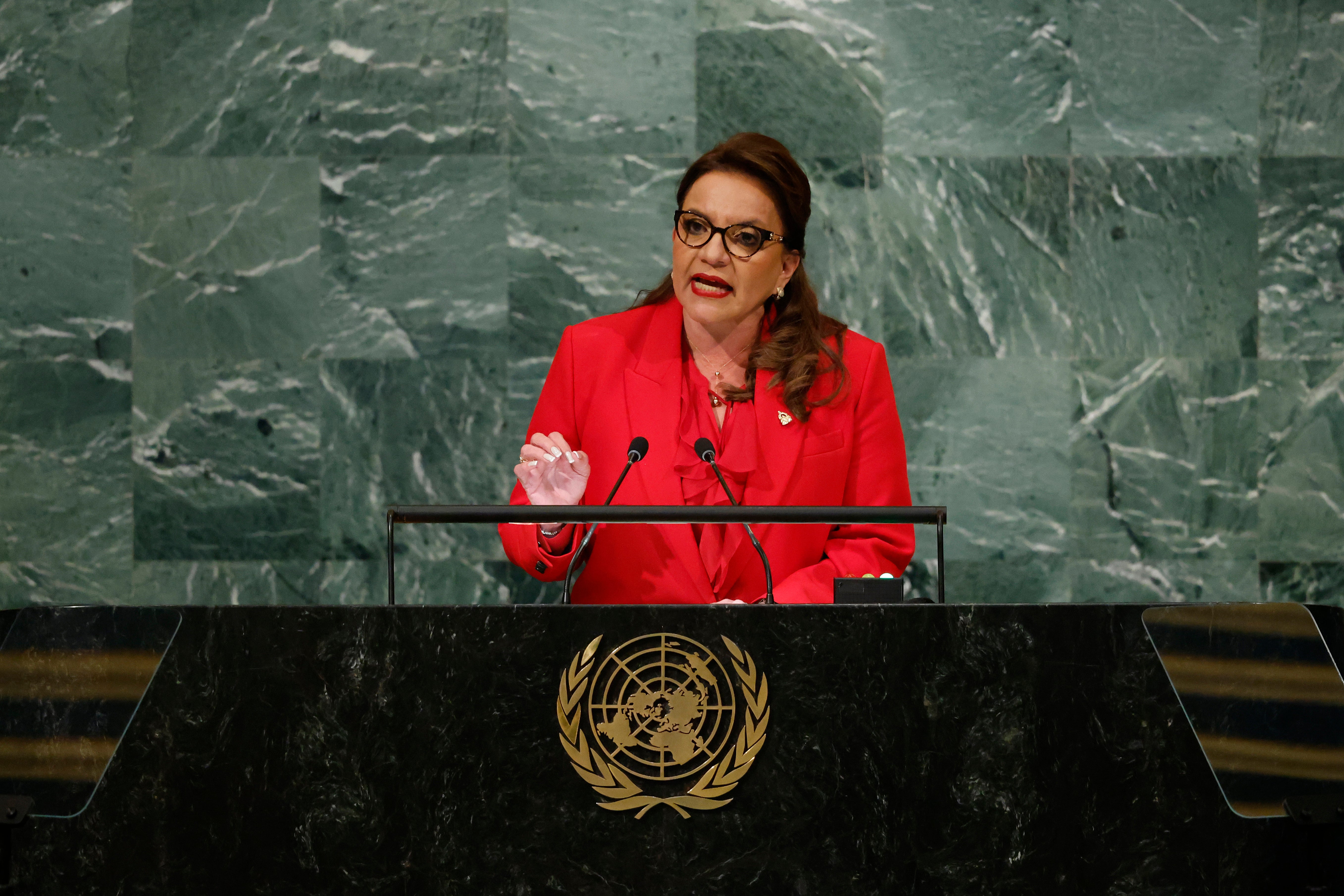Honduras declares state of emergency against gang crime
Honduras became the second country in Central America to declare a state of emergency against gang crimes like extortion

Your support helps us to tell the story
From reproductive rights to climate change to Big Tech, The Independent is on the ground when the story is developing. Whether it's investigating the financials of Elon Musk's pro-Trump PAC or producing our latest documentary, 'The A Word', which shines a light on the American women fighting for reproductive rights, we know how important it is to parse out the facts from the messaging.
At such a critical moment in US history, we need reporters on the ground. Your donation allows us to keep sending journalists to speak to both sides of the story.
The Independent is trusted by Americans across the entire political spectrum. And unlike many other quality news outlets, we choose not to lock Americans out of our reporting and analysis with paywalls. We believe quality journalism should be available to everyone, paid for by those who can afford it.
Your support makes all the difference.Honduras became the second country in Central America to declare a state of emergency to fight gang crimes like extortion.
For years, street gangs have charged protection money from bus and taxi drivers and store owners in Honduras, as in neighboring El Salvador.
Late Thursday, Honduran President Xiomara Castro proposed a measure to limit constitutional rights so as to round up gang members.
“This social democratic government is declaring war on extorsion, just as it has, since the first day, declared wars on corruption, impunity and drug trafficking," Castro said. The measure must still be approved by Congress. “We are going to eradicate extortion in every corner of our country.”
On Friday, Jorge Lanza the leader of the bus operators in Honduras, supported the move, saying bus drivers were tired of being threatened and killed for not paying protection money. Lanza said drivers had been asking for a crackdown for years.
“We can't put up any longer with workers being killed and paying extortion,” Lanza said. “We hope these measures work and remain in place.”
Lanza said that 50 drivers have been killed so far in 2022, and a total of 2,500 have been killed over the last 15 years. He estimated the companies and drivers have paid an average of about $10 million per month to the gangs in order to operate.
Honduras hasn't specified exactly what the state of emergency would entail, but normally such measures temporarily suspend normal rules regulating arrests and searches; sometime limits on freedom of speech and assembly are implemented as well.
In neighboring El Salvador, President Nayib Bukele requested Congress grant him extraordinary powers after gangs were blamed for 62 killings on March 26, and that emergency decree has been renewed every month since then. It suspends some Constitutional rights and gives police more powers to arrest and hold suspects.
That measure has proved popular among the public in El Salvador, and has resulted in the arrest of more than 56,000 people for alleged gang ties.
But nongovernmental organizations have tallied several thousand human rights violations and at least 80 in-custody deaths of people arrested during the state of exception.
Rights activists say young men are frequently arrested just based on their age, appearance or whether they live in a gang-dominated slum.